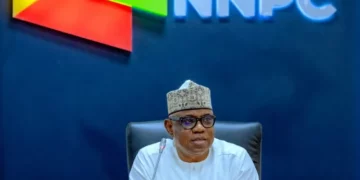International non-governmental organizations in Nigeria have denied reports that some of its members were being involved in terrorism financing. The body of NGOs complained of violent attacks on its workers.
The director, Nigeria INGO forum Camilla Corradin made the remarks in Abuja during the NIF documentary premiere: “Making a Difference: INGOs Response in North-East Nigeria”.
She said the NGOs have lifted over 20 million less privileged persons in the North East and over 35 million nationwide. However, she failed to provide evidence to support the claim.
“We share the same goal because at the end of the day, we want to improve the life of the people who are in need so it is for the UN agencies and for the government.
“We have supported 20m people in the BAY state. This figure is not just limited to IDPs; it also includes host communities because it’s really important to address the needs of the IDPs but we should leave the rest of the population which also has needs, refugees coming from other countries,” she said.
Corradin said 35-40 million people have been helped by the body between 2021 and now, saying that the number of beneficiaries will keep coming in as the organisations compile notes.
She added that 95 percent of International NGOs staff are Nigerians except for technical experts.
“We have several colleagues in the past years who have been abducted, killed and we have been going through very traumatic events right in these attacks. The direct attack targeting not only the INGOs but the humanitarian community. We are talking about INGOs but almost all our staff are Nigerians and by belonging to an INGO they are targeted as well”.
Corradin said all cash movements of the NGOs are shared with the EFCC through a cash notification system. “We want to make sure that they are aware of where the money is going and that we are as transparent as possible protecting the beneficiary data according to the Nigerian law”.
She said the complex security situation in the country has affected the capacity of the organizations to effectively tackle humanitarian crises and build capacity of beneficiaries to be self-sufficient.











